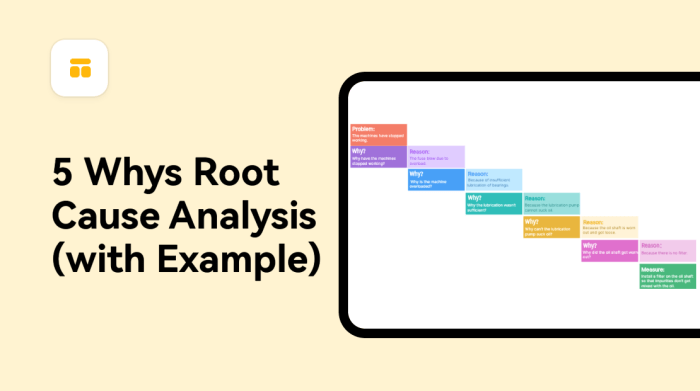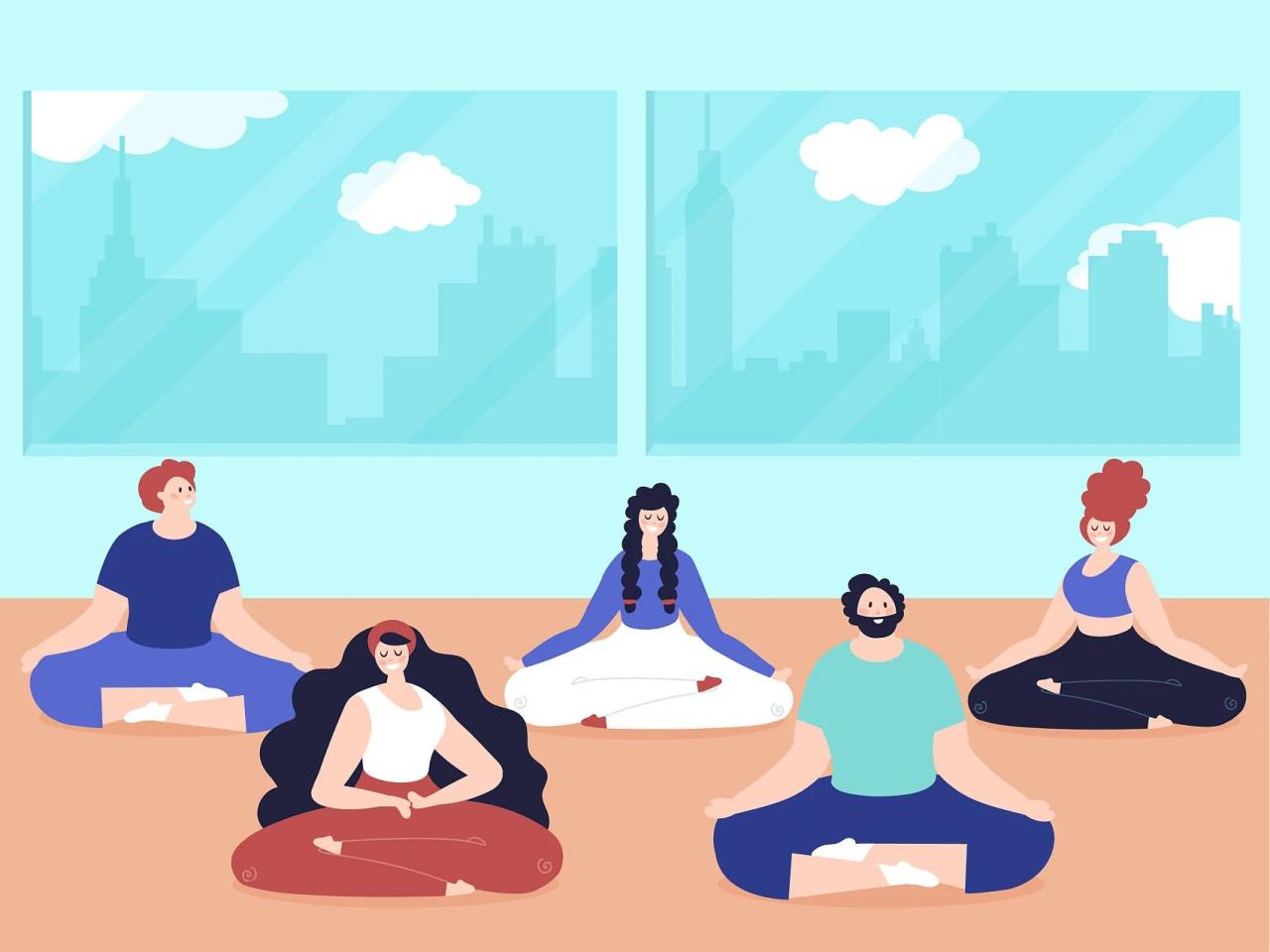10 reasons you should meditate every day. Daily meditation isn’t just a trend; it’s a powerful tool for cultivating well-being. From stress reduction and enhanced focus to boosting self-awareness and promoting inner peace, meditation offers a multitude of benefits. This article delves into ten compelling reasons why incorporating daily meditation into your routine could transform your life for the better.
This article will explore the profound impact of daily meditation on various aspects of your life, providing concrete examples and techniques to help you incorporate this practice into your daily routine. We’ll cover everything from managing stress to improving sleep quality and fostering creativity. Get ready to uncover the secrets to a more balanced and fulfilling life through the simple act of meditation.
Unlocking the Power of Daily Meditation
Meditation, a practice rooted in ancient traditions, has emerged as a powerful tool for cultivating well-being in modern life. Studies consistently demonstrate its profound impact on mental and physical health, offering a pathway to stress reduction, improved focus, and enhanced emotional regulation. This article delves into ten compelling reasons why incorporating daily meditation into your routine can significantly improve your quality of life.
We’ll explore the tangible benefits and provide practical examples to inspire you to embark on this transformative journey.Research indicates that regular meditation can lead to measurable improvements in various aspects of health and well-being. For instance, numerous studies have shown a correlation between consistent meditation practice and reduced anxiety levels, improved sleep quality, and increased resilience to stress.
This article will systematically examine these benefits and illustrate how meditation can positively influence various facets of your life. It presents a structured approach to understanding the multifaceted advantages of daily meditation.
Ten Reasons to Meditate Daily
Daily meditation offers a wide array of benefits. From stress reduction to enhanced focus, incorporating meditation into your daily routine can positively impact your mental and physical health. The following table summarizes ten compelling reasons for making meditation a daily practice.
| Reason | Brief Description | Benefits | Examples |
|---|---|---|---|
| Stress Reduction | Meditation helps calm the mind and body, reducing the physiological responses associated with stress. | Lower cortisol levels, reduced anxiety, improved emotional regulation. | Facing a demanding work deadline? Meditation can help you stay calm and focused, reducing feelings of overwhelm. |
| Improved Focus and Concentration | Through focused attention, meditation trains the mind to resist distractions and improve concentration. | Enhanced cognitive function, better decision-making, increased productivity. | Need to complete a complex project? Meditation can sharpen your focus and improve your ability to stay on task. |
| Enhanced Self-Awareness | Meditation fosters a deeper understanding of your thoughts, emotions, and behaviors. | Increased self-compassion, improved interpersonal relationships, greater emotional intelligence. | Struggling with a recurring pattern of negative self-talk? Meditation can help you recognize and challenge these patterns, promoting self-acceptance. |
| Reduced Anxiety and Depression | Regular meditation practice can significantly decrease symptoms of anxiety and depression. | Lowered heart rate, reduced blood pressure, improved mood regulation. | Experiencing persistent feelings of anxiety? Meditation can provide a supportive tool for managing these feelings. |
| Better Sleep Quality | Meditation can help calm the mind and body, preparing you for restful sleep. | Improved sleep duration and quality, reduced insomnia, increased energy levels. | Struggling with insomnia? Meditation can create a calming atmosphere before bed, facilitating a more restful night’s sleep. |
| Increased Emotional Regulation | Meditation helps cultivate emotional balance, enabling you to respond to challenges more effectively. | Improved coping mechanisms, enhanced resilience, greater emotional stability. | Dealing with intense emotions like anger or frustration? Meditation can equip you with tools to manage these emotions in a healthy way. |
| Improved Physical Health | Meditation has been linked to various improvements in physical health, including reduced pain and improved cardiovascular function. | Lower blood pressure, reduced chronic pain, improved immune function. | Experiencing chronic pain? Meditation can be a complementary therapy for managing discomfort and promoting overall well-being. |
| Increased Compassion and Empathy | Meditation cultivates a sense of interconnectedness with others, fostering compassion and empathy. | Stronger relationships, improved social skills, greater altruism. | Want to build stronger relationships? Meditation can promote understanding and empathy, fostering deeper connections. |
| Enhanced Creativity | By quieting the mind, meditation can unlock creative potential and promote innovative thinking. | Improved problem-solving skills, greater flexibility in thinking, more original ideas. | Facing a creative block? Meditation can foster a calm and receptive state of mind, allowing new ideas to emerge. |
| Improved Focus on the Present Moment | Meditation encourages mindfulness, enabling you to fully experience the present without judgment. | Reduced stress and anxiety, increased appreciation for life’s experiences, enhanced self-awareness. | Feeling overwhelmed by the past or future? Meditation can help you ground yourself in the present moment, increasing your appreciation for the now. |
Reducing Stress and Anxiety
Stress is a ubiquitous part of modern life, impacting our physical and mental well-being. Understanding the physiological responses to stress and learning effective coping mechanisms is crucial for maintaining overall health and happiness. Daily meditation offers a powerful tool for managing stress and anxiety by calming the nervous system and promoting emotional regulation.The body’s response to stress, often referred to as the “fight-or-flight” response, involves a cascade of hormonal changes.
Cortisol, a primary stress hormone, is released, increasing heart rate, blood pressure, and respiration. Prolonged exposure to these heightened physiological states can lead to various health problems, including cardiovascular issues, weakened immunity, and sleep disturbances. Meditation provides a pathway to counteract these negative effects.
Physiological Effects of Stress
Stress triggers the release of stress hormones like cortisol, adrenaline, and norepinephrine. These hormones prepare the body for immediate action by increasing heart rate, blood pressure, and respiration. Prolonged stress can lead to a persistent state of physiological arousal, increasing the risk of various health problems. Chronic stress can suppress the immune system, making individuals more susceptible to illnesses.
How Meditation Regulates the Nervous System
Meditation, through its focus on breathwork and mindful awareness, can help regulate the autonomic nervous system. The autonomic nervous system controls involuntary bodily functions like heart rate and digestion. Meditation practices, by training the mind to focus on the present moment, can shift the nervous system from the sympathetic (fight-or-flight) state to the parasympathetic (rest-and-digest) state. This shift promotes relaxation and reduces physiological stress responses.
Techniques for Incorporating Meditation into Daily Stress Management
Incorporating meditation into daily routines is key to stress management. Start with short, 5-10 minute sessions, gradually increasing the duration as you become more comfortable. Find a quiet space where you can sit or lie down comfortably. Focus on your breath, noticing the sensation of air entering and leaving your body. When your mind wanders, gently redirect your attention back to your breath.
Use guided meditations for support if needed. Consistency is crucial. Regular practice builds resilience and strengthens the ability to manage stress effectively.
Meditation vs. Other Stress Reduction Methods
| Method | Mechanism | Strengths | Limitations |
|---|---|---|---|
| Meditation | Regulates the autonomic nervous system, promotes mindfulness | Effective for long-term stress reduction, improves emotional regulation, accessible | Requires consistent practice, may not be immediately effective for acute stress |
| Exercise | Releases endorphins, improves cardiovascular health | Effective for physical and mental well-being, readily available | May not address the root causes of stress, requires commitment |
| Deep Breathing | Calms the nervous system, reduces heart rate | Simple, portable, can be used anywhere | May not be sufficient for chronic stress, requires regular practice |
Anecdote
“I used to feel overwhelmed by my workload. I was constantly stressed and anxious, impacting my sleep and relationships. I started incorporating a 15-minute meditation practice into my morning routine. Gradually, I noticed a significant difference. My stress levels decreased, and I felt more focused and in control.
The ability to pause and observe my thoughts without judgment was invaluable. Meditation became an anchor in my life, helping me navigate challenges with more composure and resilience.”
Ever wondered why meditating daily is so important? Well, it’s all about self-care and inner peace. But sometimes, what we think is loving parenting isn’t always the best for our kids. For example, check out this insightful article on 10 things you shouldn’t do to your children that you think are acts of love 10 things you shouldn’t do to your children that you think are acts of love.
Ultimately, focusing on inner peace through meditation can lead to more mindful parenting, and that’s something we all need. So, get back to those 10 reasons meditation is so crucial for your well-being!
Improving Focus and Concentration

Unlocking the power of daily meditation extends far beyond stress reduction and anxiety management. It profoundly impacts cognitive function, including our ability to focus and concentrate. A regular meditation practice can enhance attention span, sharpen mental acuity, and even improve overall cognitive performance. This exploration delves into the intricate connection between meditation and focus, revealing specific techniques and practical applications.Meditation, at its core, trains the mind to cultivate a state of focused awareness.
This focused awareness is directly related to attention span. By consistently practicing mindfulness, the mind learns to resist distractions, maintain concentration, and sustain attention for longer periods. Imagine the mind as a muscle; consistent meditation strengthens this ability, much like physical exercise strengthens muscles.
Meditation Techniques for Enhanced Focus
Meditation techniques vary widely, but many emphasize focused attention. Mindfulness meditation, for instance, encourages awareness of the present moment without judgment. By observing thoughts and sensations as they arise and pass, the mind learns to observe without getting caught up in them. This non-judgmental observation cultivates a sharper focus, allowing for greater attention span. Another powerful technique is loving-kindness meditation, which fosters feelings of compassion and love.
Ever wondered why meditating daily is a good idea? Well, it’s about more than just zen vibes. Thinking about the 10 reasons you should meditate every day is a great start, but what about the things you shouldn’t be doing? Consider checking out this list of 20 things that everyone should have the dont list 20 things that everyone should have the dont list for a fresh perspective.
Ultimately, prioritizing these 10 reasons for daily meditation will improve your overall well-being and lead to a more positive outlook.
Through directed intention, this type of meditation trains the mind to focus on positive emotions, fostering a sense of inner peace that, in turn, supports concentration. Ultimately, these practices, when integrated into daily life, build a stronger mental foundation for sustained focus.
How Consistent Practice Improves Cognitive Function
Consistent meditation practice, like any form of mental training, can significantly impact cognitive function. Studies have shown that regular meditation can lead to improvements in working memory, processing speed, and executive functions. These functions are essential for tasks requiring sustained attention, problem-solving, and decision-making. The ability to maintain focus and resist distractions is directly related to improved performance in these areas.
Moreover, a stronger focus enhances creativity and problem-solving skills. Think of the ability to hold multiple thoughts and ideas in mind, while evaluating their merits and connections – these are skills directly enhanced by consistent meditation practice.
Meditation Types and Their Focus Benefits
The table below Artikels various meditation types and their associated focus benefits. Different approaches cater to different needs and preferences, allowing practitioners to tailor their practice to maximize focus and concentration.
| Meditation Type | Focus Benefits |
|---|---|
| Mindfulness Meditation | Improved present moment awareness, reduced mind-wandering, enhanced attention span. |
| Concentrative Meditation | Enhanced ability to maintain focus on a single point (object, sound, breath), increased mental clarity. |
| Walking Meditation | Improved awareness of bodily sensations, increased focus while moving, reduced mind-wandering. |
| Loving-Kindness Meditation | Cultivation of compassion and love, increased emotional regulation, enhanced mental clarity. |
| Transcendental Meditation | Deep relaxation, increased focus, reduced stress, improved cognitive performance. |
Activities to Practice Focus Outside of Meditation
Developing focus is not solely about meditation; it’s a holistic process. Here are some activities that can be integrated into daily life to enhance focus outside of formal meditation sessions.
- Mindful Movement: Activities like yoga, tai chi, or even mindful walking can cultivate a heightened awareness of the body and its movements. This awareness translates into better focus during other tasks.
- Creative Expression: Engaging in creative pursuits such as painting, drawing, music, or writing can improve focus and concentration through active engagement with the creative process.
- Structured Tasks: Completing tasks with clear goals and timeframes can strengthen focus and discipline. Examples include organizing a workspace, creating a to-do list, or tackling a project step-by-step.
- Digital Detox: Limiting exposure to technology and social media can significantly reduce distractions, allowing the mind to focus on more meaningful activities.
- Mindful Eating: Paying attention to the taste, texture, and smell of food during meals fosters awareness, which can improve focus during other activities throughout the day.
Enhancing Emotional Regulation
Meditation isn’t just about calming the mind; it’s a powerful tool for cultivating emotional intelligence. By quieting the incessant chatter of thoughts and emotions, we create space to understand our inner world more deeply, leading to greater self-awareness and improved emotional regulation. This deeper understanding allows us to navigate challenging emotions with greater clarity and compassion.Emotional regulation is the ability to identify, understand, and manage our emotions effectively.
Meditation fosters this ability by providing a consistent practice for observing emotions without judgment. This non-judgmental observation helps us to recognize patterns in our emotional responses and develop strategies for managing them constructively.
The Relationship Between Meditation and Emotional Intelligence
Meditation cultivates emotional intelligence by enhancing self-awareness. Through regular practice, individuals develop a heightened sensitivity to their emotional states. This awareness, coupled with mindfulness techniques, allows them to identify triggers and patterns in their emotional reactions, leading to improved self-management. This increased awareness also extends to understanding the emotions of others, fostering empathy and compassion, further strengthening emotional intelligence.
How Meditation Helps Identify and Manage Emotions, 10 reasons you should meditate every day
Meditation offers a structured approach to identifying and managing emotions. By focusing on the present moment, practitioners become more attuned to the subtle shifts in their emotional landscape. This heightened awareness allows them to recognize early signs of escalating emotions, enabling them to intervene before they become overwhelming. The process involves observing emotions without judgment, recognizing their source, and understanding their impact on thoughts and actions.
Cultivating Emotional Awareness Through Meditation
Cultivating emotional awareness through meditation involves a series of steps. First, the practitioner identifies a comfortable posture and focuses on their breath. This anchors them in the present moment, creating a stable foundation for observing thoughts and emotions. Next, they observe the arising and passing of emotions without getting caught up in them. This non-judgmental observation allows for a deeper understanding of emotional patterns and triggers.
By regularly practicing this process, emotional awareness grows, leading to improved emotional regulation.
A Method for Responding to Difficult Emotions in Healthy Ways
A powerful method for responding to difficult emotions is the RAIN method, a framework derived from mindfulness practice. It stands for Recognize, Accept, Investigate, and Non-judgmentally allow. When a difficult emotion arises, recognize it without judgment. Accept the emotion as a part of the human experience. Investigate the emotion by observing its sensations, thoughts, and feelings.
Non-judgmentally allow the emotion to be, without trying to suppress or change it. By practicing RAIN, individuals develop resilience and learn to navigate challenging emotions in healthy ways.
Common Negative Emotions and Meditation Strategies
- Anger: Meditation can help identify triggers for anger and develop coping mechanisms. Practitioners can learn to observe anger without judgment, recognizing its underlying causes. This awareness allows for a more measured response. Meditation promotes self-compassion, reducing the tendency to react impulsively.
- Fear: By observing fear in meditation, individuals can understand its physiological manifestations and recognize the underlying thoughts and beliefs that fuel it. Practicing mindfulness reduces the intensity of fear responses and allows for a more balanced perspective. The ability to observe fear without judgment helps in accepting its presence.
- Sadness: Meditation provides a space for acknowledging sadness without judgment. The process involves recognizing the emotion, accepting its validity, and allowing it to be felt without resistance. This acceptance can lead to a deeper understanding of the source of sadness, promoting healing and growth.
- Anxiety: Meditation fosters a sense of calm and presence, which directly combats anxiety. Regular practice helps regulate the body’s stress response, reducing physiological symptoms like racing heart and rapid breathing. Meditation encourages focusing on the present moment, reducing worry about the future.
- Guilt: Meditation encourages self-compassion, a key element in addressing guilt. By acknowledging guilt without judgment, individuals can understand the source of these feelings. Meditation helps to separate the feeling of guilt from the inherent worth of the individual.
Boosting Self-Awareness
Unlocking a deeper understanding of yourself is a journey of self-discovery. Self-awareness, the ability to recognize and understand one’s own thoughts, emotions, motivations, and behaviors, is a cornerstone of personal growth and well-being. It empowers us to navigate life’s challenges with greater clarity and resilience. Meditation provides a powerful pathway to cultivate this essential skill.Meditation fosters a quiet space within, allowing us to observe our inner world without judgment.
This introspective practice reveals patterns and tendencies we might otherwise overlook in the hustle and bustle of daily life. By tuning into our inner landscape, we gain valuable insights into our strengths, weaknesses, and triggers. This awareness is a catalyst for positive change, helping us make conscious choices and develop healthier relationships.
Meditation and Introspection
Meditation encourages a mindful state of awareness, allowing us to observe our thoughts and emotions without getting caught up in them. This detached observation, rather than judgment, is crucial for understanding our inner world. Through consistent practice, meditation cultivates a deeper connection with our inner selves. This introspective ability, often lacking in our fast-paced lives, is essential for identifying patterns in our behavior and reactions.
Techniques for Recognizing Personal Patterns
Identifying patterns in our thoughts, feelings, and behaviors requires consistent self-reflection during meditation. One effective technique involves noting recurring thoughts, emotions, or physical sensations. By meticulously recording these observations, we can start to see recurring themes. For example, noticing feelings of anxiety consistently before a presentation allows us to understand our response and potentially develop strategies to manage it.
Another method is to journal about our meditation experiences. This practice can reveal patterns in our emotional responses to different situations. These observations, when analyzed over time, can offer significant insights into our personal triggers.
Comparing Self-Awareness in Meditation and Therapy
| Characteristic | Meditation | Therapy |
|---|---|---|
| Focus | Internal experience, present moment | Past experiences, current issues, future goals |
| Goal | Self-understanding, emotional regulation | Problem-solving, symptom reduction, relationship improvement |
| Approach | Mindful observation, non-judgmental awareness | Structured dialogue, assessment, interventions |
| Pace | Individualized, gradual progression | Structured sessions, often with set goals |
| Support | Self-directed, guided meditation available | Professional guidance, support system |
The table above highlights the distinct yet complementary approaches to self-awareness. Meditation cultivates the internal tools for self-discovery, while therapy provides a structured framework for exploring deeper issues and developing coping mechanisms.
Thinking about incorporating daily meditation into your routine? It’s a fantastic way to boost focus and reduce stress. But if you’re a startup or small business owner, finding the time for self-care can feel impossible. Luckily, 10 must have apps for startups and small businesses can help you streamline your workflow, and free up valuable time for practices like meditation.
By optimizing your productivity, you’ll actually have more time to dedicate to the 10 reasons you should meditate every day – improved focus, stress reduction, better sleep, and more! So, get meditating!
Identifying and Understanding Personal Triggers
Through consistent meditation practice, we can identify our personal triggers. A trigger is an event, thought, or emotion that sets off a particular reaction in us. Identifying triggers allows us to anticipate potential reactions and develop strategies for managing them. For example, if we recognize that loud noises cause a spike in anxiety, we can proactively prepare for noisy environments.
Meditation helps us recognize the subtle cues that precede these reactions, allowing us to approach them with more awareness and less reactivity.
Cultivating Mindfulness
Meditation isn’t just about emptying your mind; it’s about cultivating a deeper connection with the present moment. Mindfulness, a core component of meditation, offers a powerful tool for navigating the complexities of daily life with greater awareness and composure. By embracing the present, we lessen the grip of stress and anxiety, fostering a more fulfilling and balanced existence.Mindfulness is the practice of paying attention to the present moment without judgment.
It’s about noticing your thoughts, feelings, and sensations as they arise without getting carried away by them. This focused awareness, cultivated through meditation, fosters a profound connection to your inner world and the external environment. It’s about observing your experience rather than reacting to it.
The Connection Between Mindfulness and Meditation
Meditation provides a structured environment for cultivating mindfulness. Through focused attention on breath, bodily sensations, or external stimuli, meditation strengthens the ability to observe without getting swept away by the mental chatter. This practice allows you to recognize and detach from automatic reactions, paving the way for more conscious choices.
Enhancing Present Moment Awareness
Mindfulness training directly strengthens present moment awareness. By repeatedly focusing on the present, whether through the sensation of your breath or the feeling of your body in space, you become more attuned to the subtle nuances of your experience. This heightened awareness extends beyond formal meditation practice, enriching your everyday interactions.
Reducing Reactivity to External Stimuli
Mindfulness significantly reduces reactivity to external stimuli. When you’re mindful, you observe the stimuli rather than automatically reacting. This observation allows you to respond more thoughtfully and less impulsively, reducing stress and anxiety triggered by external pressures. Instead of being immediately consumed by a frustrating interaction, you have the space to respond calmly and effectively.
A Mindful Activity for Daily Integration
A simple mindful activity that can be easily integrated into your daily routine is mindful walking. Find a quiet space, preferably outdoors, and focus on the sensations of your feet making contact with the ground. Notice the rhythm of your steps, the movement of your body, and the sensations of the air against your skin. Engage all your senses: the sounds of nature, the feeling of the sun on your skin, the scent of flowers.
This seemingly simple act can anchor you in the present moment, offering a welcome respite from the constant mental chatter.
A Story of Mindfulness in Action
Sarah, a busy entrepreneur, was experiencing significant stress from a looming deadline. She felt overwhelmed by the pressure to meet expectations and the weight of responsibility. She incorporated mindful walking into her daily routine, focusing on the sensations of her feet on the pavement and the rhythm of her breathing. This practice allowed her to observe her anxious thoughts without judgment.
Gradually, she became more detached from the stressful situation, enabling her to approach the deadline with a sense of calm and focus. Instead of reacting impulsively, she was able to prioritize tasks effectively, ultimately meeting the deadline with grace and composure.
Improving Sleep Quality: 10 Reasons You Should Meditate Every Day
Falling asleep shouldn’t feel like a battle. Many find themselves wrestling with racing thoughts, anxieties, and a mind that refuses to quiet down. Meditation, however, offers a powerful tool to tame this internal storm and cultivate a peaceful sleep environment. By training the mind to focus and release stress, meditation can significantly improve the quality of your sleep.Meditation creates a pathway to a more restful night’s sleep by addressing the root causes of sleep disturbances.
Through consistent practice, you can learn to quiet the mental chatter that often keeps you awake. This allows your body and mind to transition into a state of deep relaxation, setting the stage for a sound and restorative sleep experience.
The Connection Between Meditation and Sleep
Meditation fosters a state of mental calmness and reduces stress hormones like cortisol. This physiological relaxation translates into a more conducive environment for sleep. Studies have shown a direct correlation between regular meditation practice and improved sleep quality, including reduced sleep latency (the time it takes to fall asleep) and increased sleep duration.
Managing Racing Thoughts
Racing thoughts are a common obstacle to sleep. Meditation techniques, like mindfulness, provide a framework for observing these thoughts without judgment. By acknowledging the thoughts without getting entangled in them, you begin to detach from their grip, allowing the mind to settle. This non-reactive approach to thoughts can significantly reduce their power to keep you awake.
Incorporating Meditation into Pre-Sleep Routines
Establishing a pre-sleep meditation routine can be highly beneficial. Allocate a specific time each evening for meditation, ideally about 30 minutes before bedtime. This signals to your body that it’s time to wind down. Gentle stretches and deep breathing exercises, combined with guided meditation, can further promote relaxation.
Examples of Guided Meditations for Relaxation and Sleep
Numerous guided meditations are available online and through apps. Look for meditations specifically designed for relaxation and sleep. These often include calming music, nature sounds, and soothing voices that guide you through visualizations or mindful breathing exercises. Examples include meditations focusing on body scans, progressive muscle relaxation, or guided imagery.
Creating a Sleep-Conducive Environment
A supportive sleep environment plays a vital role in promoting restful sleep. Maintain a consistent sleep schedule, even on weekends, to regulate your body’s natural sleep-wake cycle. Ensure your bedroom is dark, quiet, and cool. Use blackout curtains, earplugs, or a white noise machine to eliminate distractions. A comfortable mattress and pillows are also crucial.
Creating this conducive environment strengthens the effectiveness of your pre-sleep meditation routine.
Increasing Creativity and Innovation
Unlocking your creative potential isn’t just about painting masterpieces or composing symphonies; it’s about finding novel solutions, approaching problems with fresh perspectives, and fostering a mindset that embraces innovation. Meditation plays a crucial role in this process, acting as a powerful tool for accessing the wellspring of creativity within. By quieting the mind’s chatter and cultivating a state of focused awareness, meditation allows us to tap into the subconscious, the fertile ground where innovative ideas often germinate.Meditation fosters a state of mental flexibility and openness, essential for creative thinking.
It allows us to step back from the usual mental routines and consider alternatives, ultimately leading to new and insightful solutions. This heightened receptiveness to possibilities is a key component of creative problem-solving, enabling us to connect seemingly disparate concepts and generate unique ideas.
Meditation and Creative Problem-Solving Techniques
Meditation’s role in creative problem-solving extends beyond simply generating ideas. It cultivates a mental space where critical thinking and intuition can seamlessly merge. This integrated approach is invaluable in navigating complex challenges and developing innovative solutions.
Techniques for Fostering a Creative Mindset Through Meditation
Cultivating a creative mindset through meditation involves several techniques. Regular practice fosters a state of openness and receptiveness, allowing new ideas to surface. Visualization exercises, guided by the meditative state, can help explore different scenarios and possibilities. Mindfulness practices, focusing on the present moment without judgment, help clear mental clutter, creating a space for inspiration to flourish.
- Mindfulness Meditation: This technique encourages present moment awareness, allowing for the observation of thoughts and feelings without judgment. This non-reactive approach can help quiet the internal critic and free the mind to explore new ideas.
- Creative Visualization: Visualization exercises, combined with meditation, can help envision potential outcomes and solutions. This technique allows for exploration of various scenarios and possibilities without the constraints of logic or reality.
- Guided Meditation for Inspiration: Guided meditations specifically designed to foster creativity can provide structure and direction for the mind to explore new paths and connections.
Meditation and Innovative Thinking
Meditation’s impact on innovative thinking lies in its ability to promote divergent thinking – the generation of many different ideas – and convergent thinking – the evaluation and synthesis of these ideas to reach a solution. This dual process is essential for innovation, and meditation supports both aspects by clearing mental clutter and enhancing focus.
Creative Problem-Solving Methods Compared to Meditation-Driven Creativity
| Aspect | Creative Problem-Solving Methods | Meditation-Driven Creativity |
|---|---|---|
| Approach | Logical, analytical, structured | Intuitive, open-ended, receptive |
| Focus | Problem definition and analysis | Exploring possibilities and connections |
| Outcome | Solutions based on established knowledge | Innovative solutions based on new perspectives |
| Process | Systematic, step-by-step | Fluid, spontaneous, non-linear |
Encouraging New Perspectives and Ideas
Meditation encourages a shift in perspective. By training the mind to observe thoughts and feelings without judgment, it fosters a sense of detachment from pre-conceived notions and habitual patterns of thinking. This detachment allows for the consideration of new perspectives and ideas, ultimately paving the way for innovative thinking and solutions.
Promoting Physical Well-being
Meditation, often perceived as a purely mental practice, profoundly impacts physical health. It’s not just about quieting the mind; it’s about cultivating a deeper connection with the body, leading to improved physical well-being. This connection allows for better management of pain, reduced stress responses, and a more balanced physiological state. By integrating mindfulness into daily life, you can experience a ripple effect of positive changes throughout your body.
Correlation Between Meditation and Physical Health
Meditation’s impact on physical health stems from its ability to regulate the autonomic nervous system. By practicing mindfulness, individuals can shift from a state of “fight or flight” to a more relaxed “rest and digest” response. This shift has tangible effects on various physiological processes, including pain perception, blood pressure, and heart rate. Research consistently shows a correlation between regular meditation practice and improved physical health markers.
Managing Chronic Pain
Chronic pain can be debilitating, affecting not only physical function but also mental well-being. Meditation, through its focus on present moment awareness, can help manage chronic pain by altering the perception of pain signals. Mindful awareness of sensations, without judgment, can reduce the intensity and emotional distress associated with pain. This is not a cure, but a powerful tool for managing the experience.
Impact on Blood Pressure and Heart Rate
Meditation has been shown to lower blood pressure and heart rate. Studies have demonstrated that consistent meditation practice can lead to significant reductions in these vital signs, particularly in individuals with hypertension or elevated resting heart rates. This reduction in physiological stress response is often attributed to the calming effect of meditation on the autonomic nervous system.
Relieving Tension in the Body
Meditation can be used as a powerful tool for releasing physical tension. By focusing on specific areas of the body, noticing the sensations of tension without judgment, and gently releasing those tensions, individuals can experience a deep sense of physical relaxation. This can involve mindful awareness of the breath, its movement, and its connection to the body. Progressive muscle relaxation techniques, often combined with meditation, are particularly effective for this purpose.
Incorporating Meditation into a Physical Activity Routine
Meditation can be seamlessly integrated into a physical activity routine, enhancing the overall experience. Before or after exercise, incorporating a few minutes of mindful movement and breathwork can improve focus, reduce stress, and promote a more holistic approach to fitness. This allows for a more mindful engagement with physical activity, improving the experience and benefits. For example, a runner could incorporate a few minutes of mindful breathing exercises before or after a run to better connect with their body and the activity.
Finding Inner Peace and Harmony
Inner peace, a state of tranquility and contentment, is a deeply desired human experience. It’s not the absence of problems, but rather the ability to navigate life’s challenges with composure and resilience. This inner harmony, often elusive, can be cultivated through consistent practice, and meditation plays a crucial role in this process.Cultivating inner peace is about understanding and accepting our thoughts and emotions without judgment.
It’s about recognizing that we are not defined by our experiences, but rather by our responses to them. Meditation provides a pathway to this understanding, fostering a sense of calm and clarity that extends beyond the practice itself.
The Nature of Inner Peace
Inner peace isn’t a destination; it’s a journey of self-discovery and acceptance. It’s about recognizing that emotions, both positive and negative, are temporary experiences. Meditation allows us to observe these experiences without getting swept away by them. This detachment, fostered through mindful awareness, leads to a greater sense of emotional equilibrium. It’s about developing a resilient inner core that can withstand life’s storms.
Meditation and Emotional Regulation
Meditation techniques, like mindfulness meditation, train the mind to focus on the present moment. This focus cultivates an awareness of thoughts and feelings without judgment. By observing these experiences without getting entangled in them, we can respond to challenging situations with greater clarity and composure. This process, over time, builds emotional resilience, allowing us to manage stressful events with greater equanimity.
Cultivating Inner Harmony Through Meditation
A consistent meditation practice helps to quiet the incessant chatter of the mind. This quietening allows us to connect with our inner selves, fostering a deeper understanding of our thoughts, emotions, and motivations. By observing these internal processes without judgment, we gain a greater appreciation for the complex tapestry of human experience. This understanding leads to a sense of inner harmony, a feeling of balance and integration within ourselves.
A Meditation Technique for Inner Balance
One technique for achieving inner balance is to focus on your breath. Find a comfortable seated position, close your eyes, and bring your attention to the sensation of each inhale and exhale. Notice the rise and fall of your chest or abdomen. As thoughts arise, gently redirect your focus back to your breath. This simple act of returning to the present moment, over time, fosters a sense of inner calm and control.
Maintaining Emotional Equilibrium During Stress
Imagine a challenging work deadline looming. You feel overwhelmed and stressed. Instead of getting caught up in the anxieties, you practice a few minutes of meditation. By focusing on your breath, you bring yourself back to the present moment. You notice the physical sensations of stress – tension in your shoulders, rapid heartbeat – and observe them without judgment.
You acknowledge the feeling without letting it consume you. This ability to observe and manage stress, developed through meditation, allows you to respond more effectively and calmly to the situation, maintaining a sense of emotional equilibrium.
Conclusion (Optional)

Embarking on a daily meditation practice is a powerful journey of self-discovery and growth. We’ve explored the profound benefits that consistent meditation can bring to various aspects of life, from managing stress to fostering inner peace. This journey, however, is not a destination, but a continuous exploration. It’s about cultivating awareness and acceptance of the present moment, and nurturing a connection with ourselves and the world around us.
Key Takeaways
The core message of this exploration is clear: incorporating daily meditation can lead to significant improvements in overall well-being. The practice fosters a deeper understanding of our thoughts, emotions, and physical sensations. This self-awareness is fundamental to making conscious choices and cultivating a more fulfilling life. Consistent meditation has been proven to enhance various aspects of our lives, leading to a more balanced and peaceful existence.
Final Thoughts on the Importance of Daily Meditation
The transformative power of daily meditation lies in its ability to foster inner peace and resilience. It’s not about escaping reality, but about understanding and navigating it with greater clarity and composure. Through regular practice, we gain the tools to manage stress, improve focus, and cultivate a deeper sense of self-awareness, all of which are essential for thriving in today’s demanding world.
In essence, meditation equips us with the internal resources to navigate life’s challenges with grace and wisdom.
Resources for Further Exploration
For those seeking to delve deeper into the world of meditation, numerous resources are available. Books, guided meditations, and online communities provide a wealth of information and support. Consider exploring resources from reputable meditation teachers and organizations, or even joining a local meditation group for a supportive learning environment. Finding a style of meditation that resonates with you is key to making it a sustainable practice.
Concluding Table
| Benefit | Description |
|---|---|
| Stress Reduction | Reduces feelings of overwhelm and anxiety |
| Anxiety Management | Cultivates tools to cope with anxious thoughts |
| Focus & Concentration | Enhances cognitive abilities and mental clarity |
| Emotional Regulation | Improves the ability to manage emotions effectively |
| Self-Awareness | Develops a deeper understanding of oneself |
| Mindfulness | Promotes present-moment awareness and acceptance |
| Sleep Quality | Enhances sleep patterns and promotes restful sleep |
| Creativity & Innovation | Fosters a more open and receptive mindset |
| Physical Well-being | Contributes to overall physical health and vitality |
| Inner Peace & Harmony | Cultivates a sense of calm and contentment |
Closing Notes
In conclusion, the multifaceted benefits of daily meditation extend far beyond the realm of relaxation. By consistently incorporating meditation into your life, you can cultivate a stronger sense of self, enhance your focus, and foster inner peace. This journey of self-discovery, resilience, and well-being begins with one mindful breath. Ready to experience the transformative power of daily meditation?
The choice is yours.









